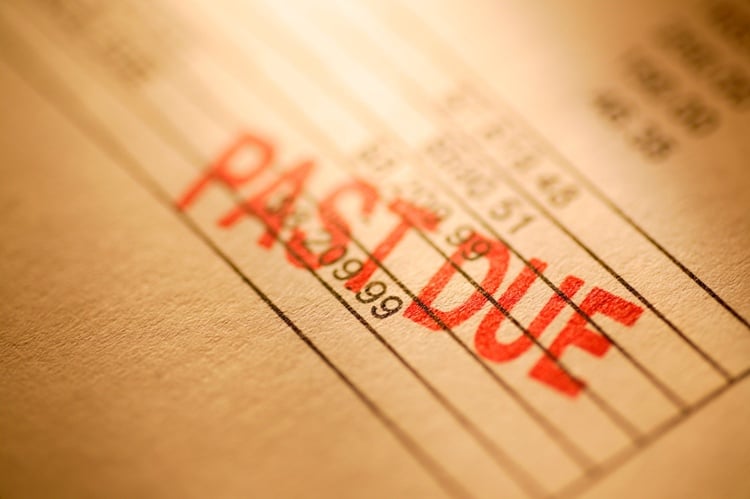Even the best of tenants may forget and pay the rent late. While there’s no law that says a landlord has to charge a late fee, there are plenty of good reasons for doing so. However, the rules for charging a late fee vary from state to state.
In this article, we’ll take a closer look at the maximum late fee by state, along with some pointers on when and why to charge a late fee and the best way to enforce a late fee with a tenant.
Maximum Late Fees by State
Resources used to compile this list of maximum late fees by state include Nolo.com, World Population Review, and the interactive map from Spark Rental. Note that some states, cities and counties may have their own regulations regarding late fees.
Alabama
No limit on late fees, although they must be reasonable.
Alaska
No limit on late fees, although they must be reasonable.
Arizona
No limit on late fees, but mobile homes are limited to $5 per day.
Arkansas
No limit on late fees, although they must be reasonable.
California
Late fees may be hard to enforce if the tenant is taken to court because the state considers late fees to be liquidated damages.
Colorado
No limit on late fees, although they must be reasonable.
Connecticut
No limit on late fees, although landlords are required to give a 9 day grace period.
Delaware
Landlords must maintain a local office where the rent can be paid in person. Mandatory three-day grace period, with late fees not exceeding 5% of the monthly rent.
Florida
No limit on late fees, although they must be reasonable.
Georgia
No limit on late fees, although they must be reasonable.
Hawaii
No limit on late fees, although they must be reasonable.
Idaho
No limit on late fees, although they must be reasonable.
Illinois
Late fees may be $20 or 20% of the rent, whichever amount is greater.
Indiana
No limit on late fees, although they must be reasonable.
Iowa
If rent is $700 per month or less, late fees can not exceed $12 per day or $60 per month. If rent is more than $700 per month, late fees can not exceed $20 per day or $100 per month.
Kansas
No limit on late fees, although they must be reasonable.
Kentucky
No limit on late fees, although they must be reasonable.
Louisiana
No limit on late fees in the landlord-tenant laws of the state, but Louisiana consumer credit laws limit the maximum late charge to 5% of the unpaid amount or $10, whichever is more.
Maine
Mandatory grace period of 15 days, late notice must be given to the tenant in writing, and late fees are limited to 4% of the rental amount.
Maryland
Mandatory five-day grace period, with late fees limited to 5% of the rent amount.
Massachusetts
Mandatory 30-day grace period, although there are no restrictions to the late fee amount. Landlords may begin an eviction when the rent is late, without having to wait 30 days.
Michigan
No limit on late fees, although they must be reasonable and not “penalizing.” In other words, late fees must relate to the actual costs incurred by the landlord when the tenant pays the rent late.
Minnesota
Late fee limited to 8% of the past due rent.
Mississippi
No limit on late fees, although there are other state laws that regulate late payments, which is why working with a real estate attorney is a good idea for investors with rental property in Mississippi.
Missouri
No limit on late fees, although they must be reasonable.
Montana
No limit on late fees, although they must be reasonable and relate to the actual expenses incurred by the landlord as a result of the rent being paid late.
Nebraska
No limit on late fees.
Nevada
Late fee is limited to 5% of the rent amount.
New Hampshire
Late fee limited to the amount of the rent amount.
New Jersey
Senior citizens must be given a 5-day grace period before being charged a late fee, while all other tenants can be assessed a late fee the day after the rent is late. In addition, late fees must be reasonable, although there are no maximum limits.
New Mexico
Late fee is limited to 10% of the rental amount.
New York
Mandatory 5-day grace period. Late fee limited to 5% of the rent or $50, whichever is less. Note that property that is rent-controlled may have different regulations regarding late fees.
North Carolina
Late fee is limited to 5% or $15 on leases where the rent is due every month, whichever is greater. The late fee limit on week-to-week leases is limited to 5% or $4, whichever is greater.
North Dakota
No limit on late fees, although they must be reasonable.
Ohio
No limit on late fees, although they must be reasonable.
Oklahoma
No limit on late fees, although they must be reasonable and relate to actual costs incurred by the landlord.
Oregon
Mandatory grace period of 4 days before assessing a late fee. Late fee must be reasonable and relate to the actual costs incurred by the landlord. Daily late fees are limited to a maximum of 6% of any flat late fee charge or no more than 5% of the monthly rent.
Pennsylvania
No limit on late fees, although they must be reasonable and relate to actual costs incurred by the landlord.
Rhode Island
No limit on late fees, although they must be reasonable and relate to actual costs incurred by the landlord.
South Carolina
No limit on late fees, although they must be reasonable and relate to actual costs incurred by the landlord.
South Dakota
No limit on late fees, although they must be reasonable and relate to actual costs incurred by the landlord and not be “punitive” in nature.
Tennessee
Mandatory grace period of 5 business days before a late fee is charged. Late fees are limited to 10% of the rent amount but no more than $30.
Texas
Mandatory grace period of one day. Late fee limited to 12% of the rent for structures with less than four rental units, with the late fee limited to 10% of the rent for structures with four units or more.
Utah
No limit on late fees, although they must be reasonable.
Vermont
Late fee is limited to the costs incurred by the landlord from the tenant paying the rent late.
Virginia
Mandatory grace period of 5 days. No limit on late fees, although they must be reasonable.
Washington D.C.
Mandatory grace period of 5 days. Late fee limited to 5% of the rent, and landlords may not evict for the nonpayment of late fees, although the late fee may be deducted from the tenant security deposit.
Washington State
No limit on late fees.
West Virginia
Laws in the state do not address late fees.
Wisconsin
Mandatory grace period of 5 business days. Late fee may be $20 or 20% of the monthly rent, whichever is greater. Landlords may charge a higher late fee but must be able to prove a bigger late fee is reasonable.
Wyoming
Laws in the state do not address late fees.

When to charge a late fee
There must be a late fee policy in the lease agreement before a landlord can charge a late fee. Unless the state landlord-tenant law has specific rules for late fees, a landlord can theoretically charge a late fee the day after the rent is due.
However, it’s good business practice to give the tenant a grace period of a few days before assessing a late fee, similar to what mortgage lenders and auto finance companies do.
Sometimes, even the best of tenants will forget to pay, or the rent may be late posting to your account due to a bank issue. It’s much wiser to give a good tenant a break by having a grace period than having them not renew their lease.
Why landlords should charge a late fee
As a landlord, you want to be fair, but you also want your tenants to pay their rent in full and on time. Reasons for charging a late fee include:
- Late rent payments affect your cash flow, meaning that you may have to use your own funds instead of the rental income to pay the bills.
- Tenants who fall behind on the rent can find it increasingly difficult to become current, so it’s better to use a late fee to stop tenants from paying late than potentially having to evict.
- Not charging a late fee rewards bad behavior, creating a situation where the tenant will pay the rent late each and every month.
How to calculate a late fee
Late fees can be calculated in a number of ways:
- A flat fee commensurate with the monthly rent amount, such as $50 or $100.
- A percentage fee based on the monthly rent, such as a 5% or 10% late fee for the amount past due.
- A daily fee of $5 or $10 for each day the rent is late past the due date or end of the grace period.
- A combination late fee, such as a one-time late fee plus a late fee for each day the rent remains unpaid.
Ways to enforce a late fee
Enforcing a late fee begins when the tenant signs the lease and moves in. When reviewing the lease with the tenant, and again at the move-in walk-through, explain to the tenant when the rent is due and the potential consequences for paying the rent late.
If you have to charge a late fee, send the tenant a written notice certified mail with return receipt requested. A certified letter reinforces the seriousness of paying the rent late and can also be used as evidence if you have to take the tenant to court for an eviction.
Of course, you can also call the tenant with a gentle reminder if they’re late paying the rent. When you do, explain to the tenant your standard operating procedure is to send a late notice, and you’re sure the rent will never be paid late again.
Final thoughts
Late fees are a fact of life in the rental property business. Before a late fee can be assessed, the late fee policy must be included in the rental agreement and follow state law. For example, some states limit the late fee amount that a landlord can charge a tenant.
Although some states don’t require a grace period before charging a late fee, it usually makes good business sense to give the tenant a couple of extra days to pay.
One way to get tenants to pay the rent on time, and improve your cash flow, is to use an online rent payment system to make it easy for tenants to pay the rent when it is due.









